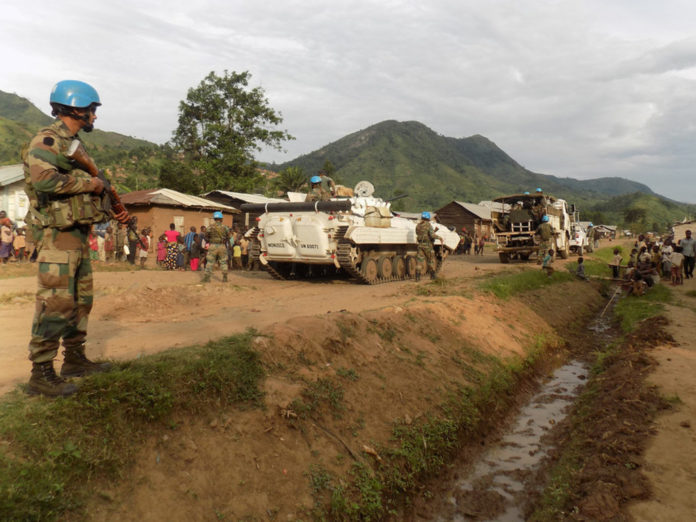According to a recent UN report, hundreds of extrajudicial executions and cases of torture and sexual violence against civilians have been documented over the past two years in the Democratic Republic of Congo's North Kivu province.
According to the report published by the United Nations Joint Human Rights Office in the DRC , the security and humanitarian situation continues to deteriorate in this eastern province bordering Uganda and Rwanda. Between January 2017 and October 2018, a third of all human rights violations documented in the country as a whole were committed in North Kivu.
The growing number and changing nature of armed groups is a major factor in this deterioration, resulting in clashes between armed groups or against security forces for control of areas or natural resources.
The report focuses in particular on the chronic situation in the Masisi and Lubero territories, where the UN has recorded at least 324 victims of extrajudicial or summary executions, 832 victims of torture or other cruel, inhuman or degrading treatment, 173 victims of rape or other sexual violence (114 women, 58 children and one man) and 431 victims of forced labor. Civilians were the main victims of the deteriorating security situation in these territories.
The UN Secretary-General's Special Representative in the DRC, Leila Zerrougui, declared that "without credible investigations to determine responsibility for each crime, and without judicial sanctions against the perpetrators of these violations - whoever they may be - impunity will continue to prevail"... "This impunity will only fuel the endless cycle of conflict and misery in North Kivu, with civilians caught between armed groups on the one hand and the security forces - who are supposed to protect them - on the other. This impunity will only fuel the endless cycle of conflict and misery in North Kivu, with civilians caught between armed groups on the one hand and the security forces - supposedly protecting them - on the other."
The report takes stock of the significant progress made in protecting civilians by all the actors involved, and proposes recommendations for consolidating and strengthening them. In particular, it urges the government to reinforce the authority of the State in affected areas, and to support judicial proceedings against alleged perpetrators of human rights violations and abuses.
The activities of armed groups have also affected the emergency response to the Ebola epidemic in the Lubero region, where violence has caused displacement both to and from Ebola-affected villages, possibly contributing to the spread of the disease.
The report also indicates that this situation of extreme insecurity and persistent human rights violations could undermine the population's political rights in the context of the forthcoming elections scheduled for December.


